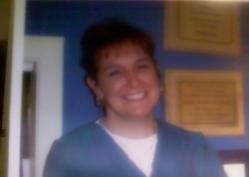




Five years old and eager to learn, Daniel is a
bilingual, lively preschool student. He was
equipped with his first cochlear implant at age two
and his second at age three. Since he cannot
wear his implants all the time, he loses the ability
to hear during sleeping hours, a crucial time
during which the brain builds neural pathways.
bilingual, lively preschool student. He was
equipped with his first cochlear implant at age two
and his second at age three. Since he cannot
wear his implants all the time, he loses the ability
to hear during sleeping hours, a crucial time
during which the brain builds neural pathways.
Stacy Aaronson is the office manager of
the largest gastroenterology firm in New
Jersey. She had an inner ear hearing
device during her teenage years, but it
amplified sounds to an extreme, leaving
noises unable to be processed. It was
taken out, and now she relies solely on
exhausting lip-reading.
the largest gastroenterology firm in New
Jersey. She had an inner ear hearing
device during her teenage years, but it
amplified sounds to an extreme, leaving
noises unable to be processed. It was
taken out, and now she relies solely on
exhausting lip-reading.
The current state of technology does not allow these extremely talented individuals to
fully showcase their skills. For Daniel, living with cochlear implants is a perpetual
challenge. It requires constant maintenance, from replacing batteries to tedious
troubleshooting when something does not sound right. For Stacy, since her auditory
nerve is damaged, no present technology can cure her deafness.
The Bionic Auditory Prosthesis can provide both Daniel and Stacy a gateway into the
hearing world, in order to build upon their innate talents and excel in society.
fully showcase their skills. For Daniel, living with cochlear implants is a perpetual
challenge. It requires constant maintenance, from replacing batteries to tedious
troubleshooting when something does not sound right. For Stacy, since her auditory
nerve is damaged, no present technology can cure her deafness.
The Bionic Auditory Prosthesis can provide both Daniel and Stacy a gateway into the
hearing world, in order to build upon their innate talents and excel in society.

